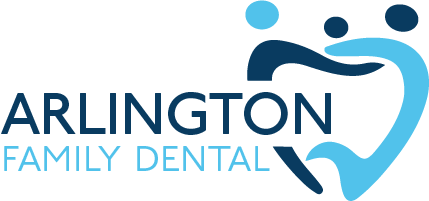
06 Feb Pregnant? Here’s What You Should Know About Your Oral Health
During pregnancy, a woman’s body goes through a host of hormonal and physical changes. While we don’t tend to think of oral health as being affected by childbearing, the truth is, even the teeth are impacted by such a change. Today, we’ll look into exactly how pregnancy and oral health are related, in hopes of equipping moms to better protect their dental health and the health of the babies they carry.
How Pregnancy Affects Mom
It would be nice to say that pregnancy magically strengthens a mother’s teeth, but unfortunately, that’s not the case. The ADA states that pregnancy heightens the risks of multiple conditions, including:
-
- Gingivitis. During pregnancy, hormonal changes cause the body to have a more extreme reaction to bacteria than normal. If left unchecked, this condition can escalate to a mild form of gum disease known as gingivitis. The CDC estimates that nearly 60 to 75% of pregnant women have gingivitis. Not all of these cases are necessarily induced by pregnancy; however, pregnancy may certainly cause some and worsen others.
-
- Cavities. A variety of circumstances that may result from pregnancy raise a woman’s risk for cavities. These include, but are not limited to, increased amounts of junk food or snacking because of cravings, dry mouth, hormonal changes, and poor oral health due to nausea and vomiting.
-
- Enamel Erosion. Many women experience nausea and vomiting during pregnancy. This common occurrence is tough on enamel, as it exposes the teeth to strong stomach acid. The acid eats away at healthy enamel, leading to erosion and decay.
How Mom Affects Baby
Oral health during pregnancy doesn’t just affect the mother. So far, we’ve been asking the question of what pregnancy does to a mother’s oral health—but what about what the mother’s oral health does for the baby’s?
Surprisingly, research shows that they are linked. The National Library of Medicine conducted a study that examined what they called “periodontal pathogens” and preterm birth. They found that while the link couldn’t always be explained, it was clear that infections like periodontal disease (gum disease) are linked to preterm labor. Some studies even conclude that periodontal disease increases one’s risk for preterm labor.
We’ve already noted that pregnancy increases a woman’s risk for cavities—but research shows that the bacteria can be passed on to the child through pregnancy and after birth as well. Clearly, the oral health of the mother has a significant impact on that of the child, even before they are born.
What About Dental Treatment During Pregnancy?
Many women may be understandably concerned about receiving dental treatment during pregnancy for fear of causing harm to their unborn child. The good news is, with modern technology, it is safe to proceed as normal in many dental situations, even while carrying a child. According to the ADA, both local anesthetics with epinephrine as well as dental radiographs (x-rays) are safe for pregnant women. The ADA explains that urgent dental treatments can be managed at any point throughout pregnancy. Delaying only risks worsening the condition. However, if the condition is not urgent, you and your dentist may decide together to defer treatment until after the pregnancy.
What Can You Do to Maximize Prenatal Oral Health?
As a soon-to-be mother, what can you do to protect your oral health (and your baby’s) from the negative effects that can accompany pregnancy? These simple practices will go a long way in protecting your teeth and protecting your baby.
Take your vitamins.
Pregnant moms are known for loading up on vitamins. The stereotype is there for good reason—when your body is doing the work of two people, it needs a little extra help. The same is true for your teeth. Always, but especially during pregnancy, your oral health could benefit from the support of vitamins such as Vitamin C, omega-3s, probiotics, and Vitamin D.
Don’t brush after vomiting.
At first, this might seem counterintuitive—don’t brush my teeth when I just threw up? But if you brush your teeth right after vomiting, you are actually scrubbing the acid from your stomach into your teeth, causing further erosion. It’s best to wait at least 30 minutes after exposure to acid to brush your teeth, no matter what the acid was from. In the case of throwing up, the ADA recommends that you rinse your mouth out with a solution made from 1 cup of water mixed with 1 teaspoon of baking soda instead. This will neutralize the acid without eroding your enamel.
Keep up the basics.
This may seem obvious, but it’s worth the reminder. For many pregnant women, increased sensitivity in their gums will make flossing more painful, and the brushing their teeth might induce nausea. Still, these are essential components of dental health that can’t be neglected. It is also crucial to see your dentist at your regularly scheduled appointments so that if pregnancy has caused any dental problems to creep in, they can address them swiftly.
Being pregnant is a time of immense physical and hormonal change. Those changes affect even a woman’s oral health. Pregnancy puts you at greater risk for gingivitis, cavities, and enamel erosion. It also heightens the risk of giving birth prematurely if you do develop gum disease. Furthermore, the bacteria that caused cavities can be passed down to the child. Through preventative steps and prompt responses should problems arise, these issues may be kept at bay. However, it is still important to understand the effect that pregnancy has on a woman’s oral health. If you have further questions on this subject or would like to schedule your next appointment, please contact our office today.

About Our Team
Our team has over 30 years of combined experience in the field of dentistry and a passion for educating our patients on the importance of good dental hygiene. To learn more about them, please visit our team page
Our staff is dedicated to making sure that your entire experience is the best it can possibly be. Whatever your needs are, our team is trained to listen and offer the best advice and guidance in choosing the services that best meet your needs.

Sorry, the comment form is closed at this time.